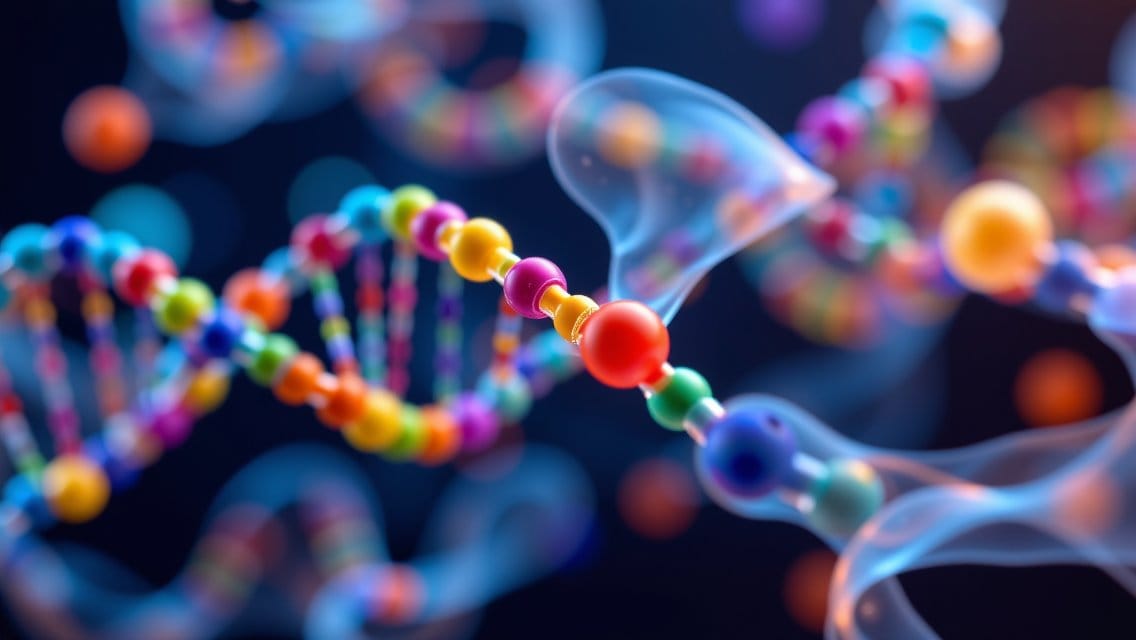The Role of Genetics in Longevity: What’s in Your DNA?
When it comes to living a long and healthy life, there’s always the question: Is it in our genes? It’s something we’ve all wondered at some point, especially when we see someone in their 80s or 90s still walking briskly and looking much less than their actual age. The truth is, while the magic pill for eternal youth doesn’t exist, genes do play a significant role in how long we live - and how well we live as we age.
But here’s the thing: genetics is just one part of the puzzle. Sure, your DNA carries the blueprint for your body’s ability to age and stay healthy, but that’s not the full story.
Colour
Our genes determine a lot about us - eye colour, height, and even the weird shape of our nose! But they also have a hand in our health and how well we age. Genes are the code for the proteins, enzymes, and processes that run our bodies. These genetic instructions influence everything from the way our cells repair themselves to how quickly our bodies accumulate damage over time.
So, how exactly do genes contribute to longevity? There’s been a lot of research on so-called “longevity genes,” or genes that seem to be linked with longer life. One of the most well-known is the FOXO3 gene. Studies have shown that people with certain variations of FOXO3 tend to live longer, healthier lives. This gene is involved in regulating processes like cell repair, stress resistance, and inflammation, all of which are critical for longevity.
Another gene that has garnered attention is SIRT1, which is part of a family of genes known as sirtuins. These genes are involved in regulating various biological processes, including DNA repair, metabolic regulation, and inflammation. Sirtuins are often referred to as “anti-ageing” genes because they play a role in slowing down the ageing process at the cellular level.
In essence, these longevity genes help protect our cells from damage, promote repair, and manage oxidative stress - key factors that contribute to the ageing process. So, if you’ve inherited a genetic variation that enhances these functions, you might have a natural advantage when it comes to longevity.
Telomeres: Your Cellular Timekeeper
Telomeres, those protective caps at the ends of your chromosomes, are another key piece in the longevity puzzle. Each time a cell divides, the telomeres get shorter. Eventually, when they become too short, the cell can no longer divide and becomes dysfunctional or dies. This process is one of the main reasons our bodies age.
Some people are genetically predisposed to have longer telomeres or to maintain them for a longer period. This can result in slower cellular ageing and, potentially, a longer life. On the flip side, genetic mutations that cause accelerated telomere shortening could lead to earlier signs of ageing or age-related diseases.
Mitochondrial Health: Energy for the Long Haul
Mitochondria are the powerhouses of our cells, responsible for generating the energy we need to function. But as we age, the function of our mitochondria declines, leading to a decrease in energy production and an increase in cellular damage. Interestingly, there are specific genetic factors that influence the health of our mitochondria.
For example, mutations in the mtDNA (mitochondrial DNA) have been linked to age-related diseases such as Alzheimer’s and Parkinson’s. However, certain genetic variations are associated with more resilient mitochondria that can function well into old age, promoting both longevity and good health.
The Role of Inflammation
Chronic inflammation has been dubbed the “silent killer” because it plays a role in a wide range of age-related diseases, from cardiovascular issues to diabetes and even cancer. Inflammation is a natural immune response, but when it becomes prolonged, it accelerates ageing and the onset of disease.
Genetics influences the body’s inflammatory response. Some people have genetic variants that promote lower levels of chronic inflammation, which could help them live longer, healthier lives. Conversely, those with genetic predispositions for higher inflammation may be at greater risk for age-related conditions.
Environment and Lifestyle: The X-Factor in Longevity
While genetics certainly sets the stage for your health and longevity, environment and lifestyle choices play a huge role in determining how those genes are expressed. This concept is known as epigenetics; how environmental factors and lifestyle choices can affect gene expression without changing the underlying DNA code. So, while you may have inherited a genetic predisposition for good health and longevity, it’s your daily habits that can either enhance or hinder those genetic advantages.
Exercise and Physical Activity
Exercise is one of the most powerful tools we have to influence our longevity, and it’s also one of the best ways to make your longevity genes work for you. Regular physical activity can stimulate the expression of genes involved in muscle maintenance, cardiovascular health, and even anti-ageing.
Nutrition
What you eat matters. A balanced diet rich in antioxidants, vitamins, and healthy fats can help protect your DNA from damage. Foods like fruits, vegetables, nuts, seeds, and fatty fish can reduce oxidative stress and inflammation, enhancing the effects of your longevity genes. In particular, diets rich in polyphenols—found in foods like berries, dark chocolate, and green tea—have been shown to activate sirtuins, the anti-ageing genes that can help repair and protect cells.
Stress Management and Mental Health
Chronic stress is a major factor in accelerating ageing, but managing stress through mindfulness, meditation, and healthy coping mechanisms can help mitigate its negative effects. Your genetic predisposition might make you more or less susceptible to the harmful effects of stress, but lifestyle choices like yoga, breathing exercises, and even regular laughter can all help keep your stress levels - and yourageingg - under control.
Sleep
Sleep is a critical factor in health and longevity, and it’s also strongly influenced by your genetics. Some people may have a genetic advantage when it comes to getting restorative sleep, while others might struggle more with sleep disorders. Either way, prioritizing sleep is essential. During deep sleep, your body repairs damaged cells clears out toxins, and restores energy – all essential functions for longevity.
Genetics Isn’t Destiny!
So, if you’ve inherited “longevity genes” from your parents, that’s a great start - but don’t rest on your laurels just yet. Your lifestyle choices - what you eat, how you move, how you manage stress - can either enhance or diminish the genetic advantages you’ve been given.
So, whether you’ve inherited longevity genes or not, the key to living a long and healthy life is to work with your genetics, not against them. And remember, longevity isn’t just about adding years to your life; it’s about adding life to your years.
Live well, and let your genes do the rest.







Comments